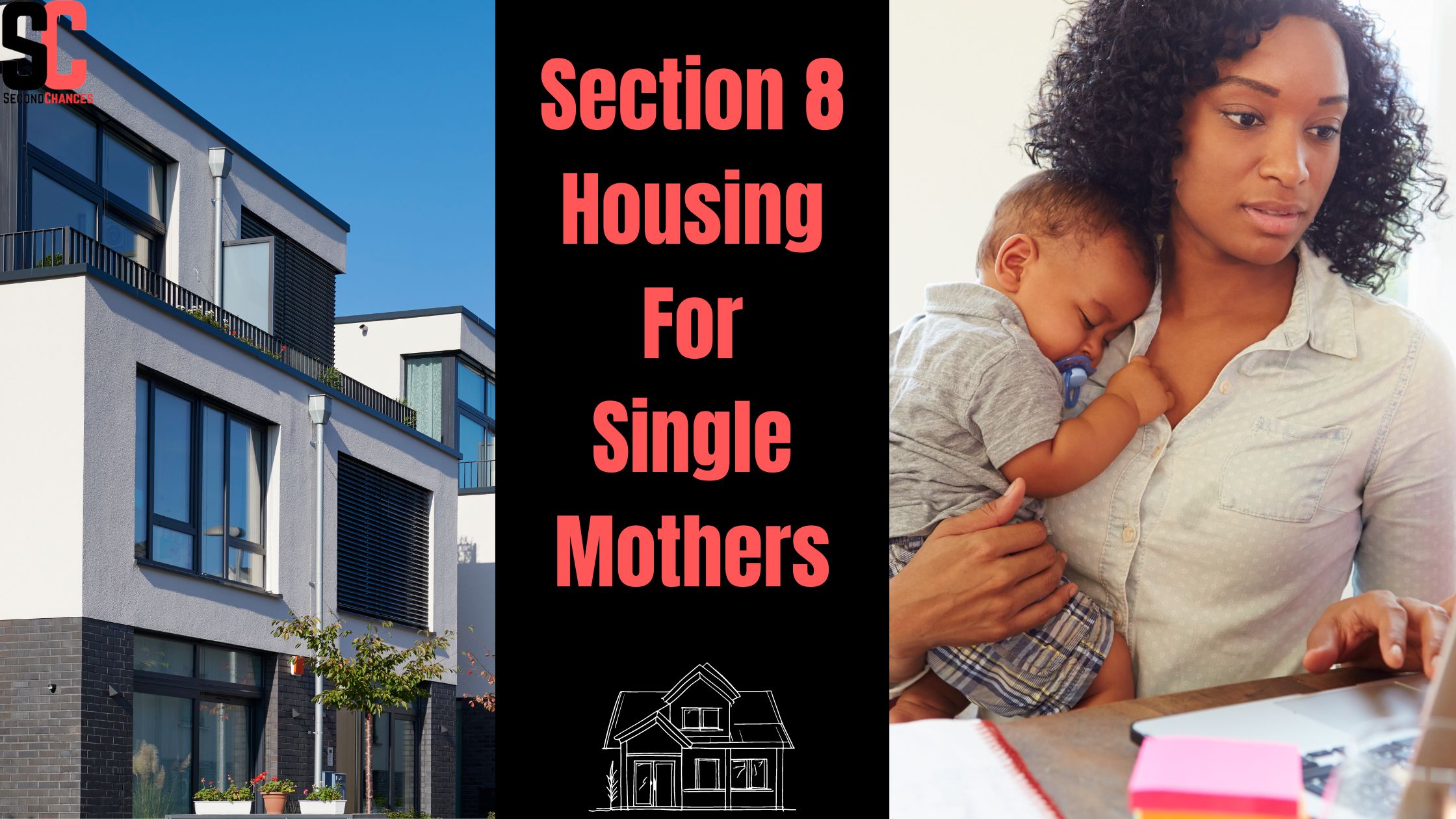Are you a solo mom Looking for housing assistance? Section 8 Housing For Single Mothers can be a good choice for you.
The Section 8 program is a crucial resource for women in today’s housing landscape, offering a beacon of hope for many struggling to provide a safe and stable home for their children.
A single mother faces various challenges, including juggling multiple responsibilities and managing financial constraints. The Housing Choice Voucher Program, more commonly known as Section 8, provides essential assistance when faced with such challenges.
This comprehensive guide explores Section 8 Housing For Single Mothers, its workings, eligibility criteria, and more.
So, Without Further Delay, Let’s get started.
Table of Contents
What is Section 8 Housing?
The Section 8 housing program provides housing assistance to needy people. Section 8 housing offers tenants more choices than either subsidized housing or public housing. One stipulation is that the landlord must agree to rent under the program. Section 8 Houses For Rent With No Deposit Near Me are available, provided landlords agree to participate in the Section 8 program
After the housing voucher has been approved, the money is directly paid to the landlord. There is only a difference between what the landlord charges and what the family is responsible for. If my landlord charges $650 for rent and my housing voucher is $400, I’ll only have to pay the $250 difference. It is also possible to buy a house using Section 8 housing.
What is Section 8 Housing For Single Mothers?
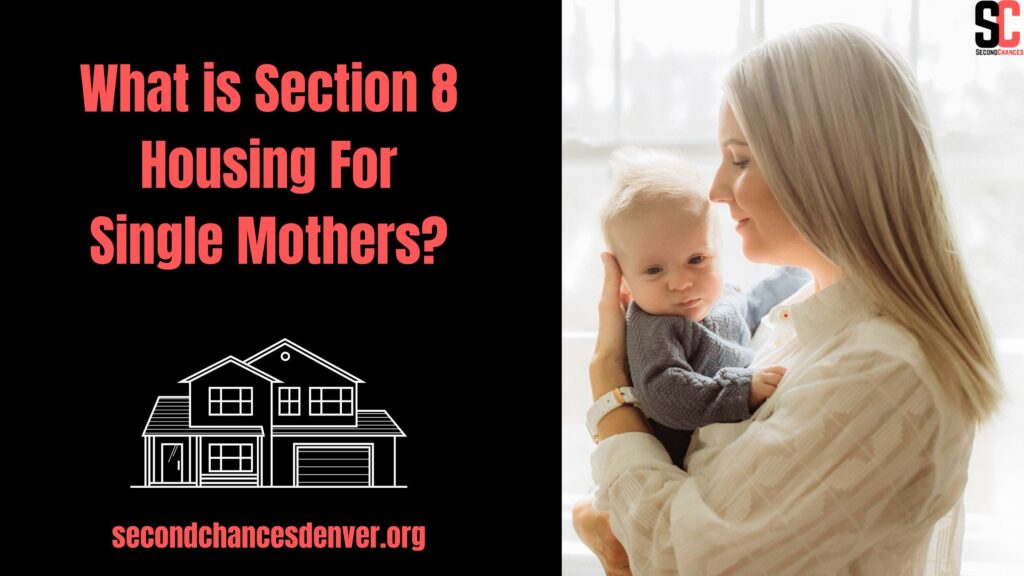
The Section 8 Housing Choice Voucher program is funded by HUD. Section 8 allows single parents with low incomes to rent accommodation from private owners. The PHA determines your eligibility for a Section 8 voucher based on your income and family size. To qualify, families must pay 30% of their “adjusted income” for rent and utilities.
As a result, the government pays the remainder of the rent and utility bills. A person’s income determines whether housing is affordable (30% of their income) or completely free (30% of 0).
It is important to note that housing options do not restrict themselves to subsidized housing and can include:
- The apartment
- A single-family home
- Condos
- A multifamily building
- Mobile homes
How Section 8 Vouchers Work?
The Public Housing Agencies (PHAs) issue housing choice vouchers. PHAs receive federal funds from the government to issue Section 8 vouchers to eligible residents.
When an individual or family receives a housing-choice voucher, they are effectively receiving a discount on their rent. Housing subsidies are paid to landlords on behalf of Section 8 recipients by the PHA. The recipient is then responsible for paying the difference between the actual rent owed and the amount covered by Section 8.
What is The Importance of Section 8 Housing For Single Mothers?
The following are some reasons why Section 8 Housing For Single Mothers is important:
Financial Relief
A major advantage is the financial reprieve it offers. By covering a considerable portion of their monthly rent, single moms can allocate their funds to other pressing needs, such as childcare, education, and medical care.
The Freedom To Choose
While many government-assisted housing programs restrict beneficiaries to specific housing units, Section 8 allows them to choose a suitable home that matches their family’s needs.
Stability And Security
Section 8 assists single moms in fulfilling this basic need by providing a stable home environment for their children. The continuity and security it provides can significantly enhance a child’s overall development and well-being.
How To Get Section 8 Housing For Single Mothers?
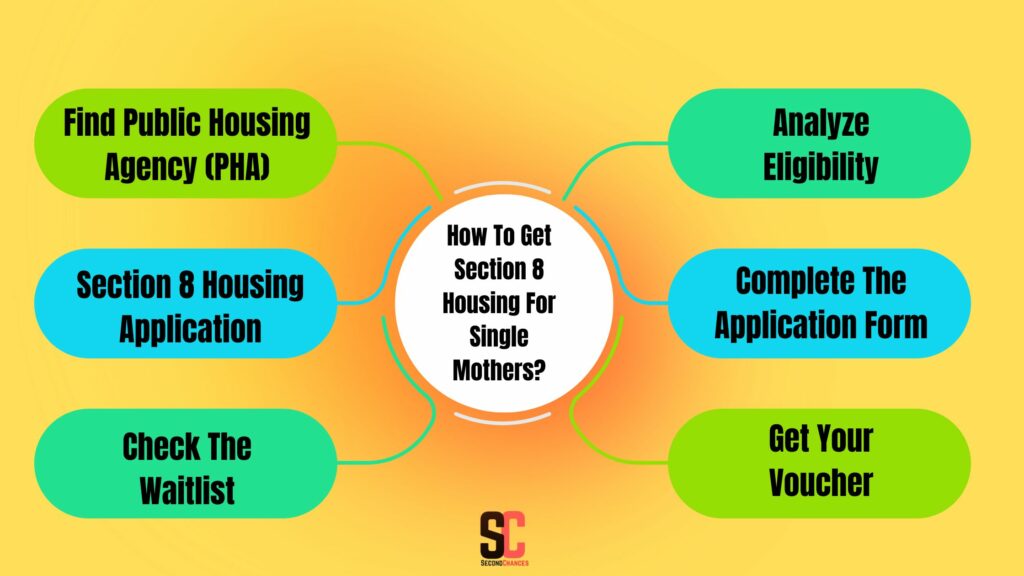
Find Public Housing Agency (PHA)
It’s best to start here. Although Housing Choice Vouchers are overseen by the Federal Housing Administration (HUD), they are administered by local housing authorities.
Analyze Eligibility
Section 8 assistance may be available to you if you are eligible for assistance through the PHA. Family size and income are factors to be considered – in general, the income can’t exceed 50 percent of the area’s median income. Additionally, Section 8 is limited to U.S. citizens and certain noncitizen categories with qualifying immigration status.
Section 8 Housing Application
Fill out an application for Section 8 Housing For Single Mothers. A Housing Choice Voucher application is completely free, and depending on the PHA, it will be available online, by mail, or at the local housing authority.
Complete The Application Form
The application for Section 8 Housing For Single Mothers must be completed and submitted. The application typically asks for the following information from all household members: name, date of birth, Social Security number, and gross income. There may also be requirements for mailing addresses, email addresses, housing histories, criminal histories, phone numbers, etc. Ensure the application is submitted correctly and efficiently by following all instructions.
Check The Waitlist
Find out the waiting list status. Housing offices either reject or place applicants on waiting lists after processing their applications. Applications can be rejected even if applicants are eligible because of high demand or because they weren’t selected in a lottery. The PHA must provide reasons, however, and applicants can request an informal review.
Get Your Voucher
Once you receive your voucher, find housing that meets your needs. Section 8 Housing For Single Mothers requires tenants to pay 30 percent of their income toward rent. The voucher will cover the rest of the expenses. Section 8 voucher holders must find housing that accepts vouchers and meets program requirements, including a physical inspection. A PHA will pay the landlord directly once housing is secured. Landlords That Accept Section 8 Housing Vouchers are eligible to receive payments directly from the Public Housing Authority (PHA) once the housing arrangement is confirmed.
Eligibility Criteria For Section 8 Housing For Single Mothers?
What are the eligibility requirements for Section 8 Housing For Single Mothers? This is not a simple question. The HUD establishes four specific requirements that you must meet to qualify.
Income Limits
The Housing and Urban Development Department sets income limits for Section 8 applicants. Each area’s income limit is calculated based on the median income in that area. The income limit is divided into three tiers:
| Income Level | Percentage of Area’s Median Income Level | Dollar Amount |
| Extremely low income | 30% | $35,450 |
| Very low income | 50% | $59,100 |
| Moderately low income | 80% | $94,600 |
Citizenship Status
Section 8 is only available to U.S. citizens and noncitizens who qualify under certain immigrant categories. A certification form must be signed by every individual in your household when applying for Section 8
- A U.S. citizen
- An eligible alien
- Not claiming eligibility
The HUD requires only a declaration of citizenship to verify citizenship. The PHA may require additional documentation, including:
- A U.S. passport
- A resident alien card
- Registration card
- The social security card
The PHA may also require eligible immigrants to provide documents proving their immigration statuses or to sign a form giving permission to use the information provided by the Immigration and Naturalization Service.
Family Status
Applicants for Section 8 Housing For Single Mothers must also meet HUD’s definition of a family. According to HUD, a family consists of one or more individuals or groups of individuals who meet one of these conditions:8
- Having children
- Have at least one family member who is 62 or older
- Have a disabled family member
- Displaced for an eligible reason from their home
- Previously lived with people receiving Section 8, but lives alone now that other family members have moved out
- Section 8 is available to single people without children.
Eviction History
A family or individual applying for Section 8 must generally have a positive rental history. Applicants evicted from their homes because of drug-related or criminal activity are not eligible for HUD housing programs. A person can also be disqualified if he or she has been convicted of manufacturing methamphetamine in a subsidized housing project.
Required Documents For Section 8 Housing For Single Mothers?
You may be asked for supporting documentation by your PHA once you support your application. Here are some examples of what may be asked of you:
- Government-issued identification for all household members
- A passport, birth certificate, or other proof of citizenship is required.
- Bank account statements
- A pay stub
- The tax return
- A copy of your current rental agreement
Your application will be processed more quickly if you respond to any requests for information.
How To Apply For Section 8 Housing For Single Mothers?
Find your local PHA
The first step is to contact your local Public Housing Agency (PHA). You will be provided with an application and informed of any additional requirements imposed by your locality.
Documentation Needed
The documentation you provide on the application needs to verify the information you provide.
The Interview
The PHA may review your application in person after you submit it so that your documentation can be reviewed and further discussion can occur.
Await Approval
There is often a waiting list for Section 8 housing because of the high demand. The voucher you receive after approval can be used to find housing.
Housing Selection
A voucher can be used to search for housing. You must choose a rental unit that meets HUD’s health and safety requirements.
An Annual Review
Annual reviews ensure beneficiaries continue to meet the program’s requirements to receive assistance.
The above information relates specifically to Section 8 Housing For Single Mothers in the United States. In order to provide a tailored answer, please provide more details about other programs or benefits or about support systems for single mothers in another country.
Things To Do After Applying For Section 8 Housing For Single Mothers
According to former workers in the housing authority and lawyers, being on the waitlist does not necessarily mean waiting until you hear back from them. Among the tips they shared were:
- Be sure to take notes and photos. All communications with the housing authority should be documented. Your phone can take pictures of documents, emails you send, or notes you take while on the phone. In housing authorities, lawyers and former employees have told us that record keeping is essential due to the high staff turnover rate.
- Stay in touch. You need to respond to any housing authority notices you receive via phone, email, or mail so that the agency knows you’re still interested in staying on the waitlist.
- Don’t stop applying. You should apply as soon as new waitlists become available in your state. Wait no longer!
- Take part in online communities. Section 8 groups can be found on social media platforms. The same situation you are in has led to thousands of people creating social networks as a support system and a means to assist one another. There are several popular nationwide Facebook groups for Section 8 voucher holders: Public Housing (Section 8) (Voucher Holders) and Housing Choice Voucher (Section 8) Friends.
- You need to be patient. The approval process can take months or years, depending on demand. Please don’t give up!
- Be sure to keep everyone updated. Whenever you or someone in your household changes where you live, how much money you make, or how many people are living (for example, if you get married, divorced, adopted, or have a child), you should notify the housing authority.
How Long is The Waiting List For Section 8 Housing For Single Mothers?
Historically, Section 8 programs are oversubscribed, and waiting lists can last years. You are not guaranteed to be accepted onto the waiting list.
The wait time for a transplant varies widely from state to state, but nationally, it averages nearly two and a half years. The average time spans by state range from six months in Texas to nine months in Nebraska and West Virginia to five years in Alabama.
Wait times in New York vary depending on your position on the list, your preferences, your income, and the availability of vouchers.
A Section 8 waiting list is generally longer than a public housing waiting list. The difference between vouchers and public housing is that a voucher can be used anywhere within the state. You can find more information about Section 8 vouchers, including eligibility requirements for tenants and landlords, at the Department of Housing and Urban Development (HUD).
Alternatives For Section 8 Housing For Single Mothers
The Public Housing Options

You can typically get help from the federal government through the Department of Housing and Urban Development (HUD). They have the option of receiving public housing assistance as one of their best options. No consideration was given to single mothers when designing this program. The main factor determining eligibility is income. As such, applicants must provide proof that they are low-income or disabled in order to qualify for the program.
This program can potentially be used by any single mother who meets the income requirements. The only thing you need to do is find your local housing authority and submit your application. Your local area may have many homes that qualify for Housing Grants For Single Mothers.
USDA Rental Help
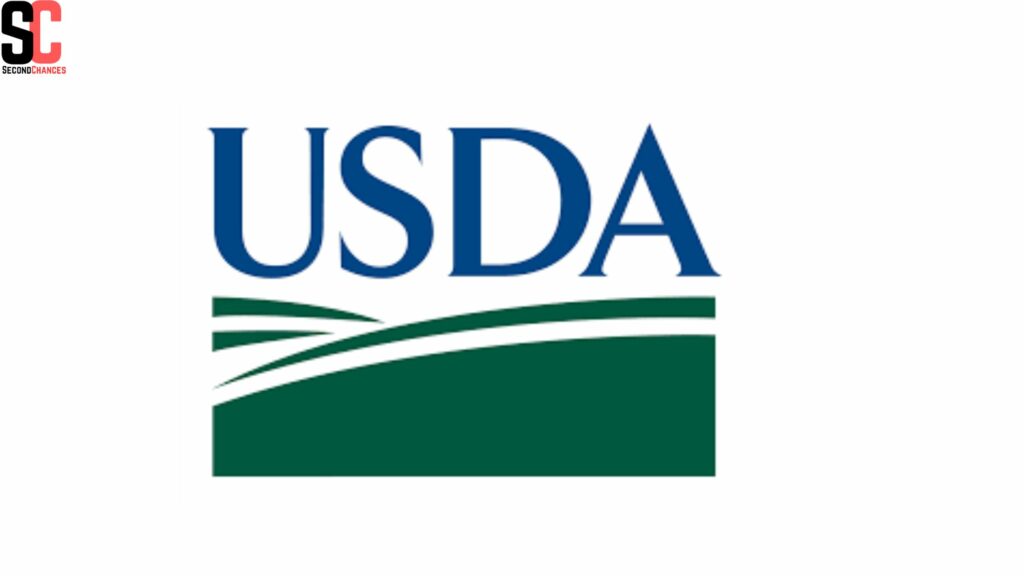
The United States Department of Agriculture might not interest you much unless you shop for meat at the grocery store. Did you know you can rent a home at a very affordable price with the help of the USDA?
Low-income families and individuals can access USDA programs to rent homes in rural areas. The government effectively picks up the slack and pays for the part of your rent that you cannot pay if you qualify.
The thought of living in a rural area might seem daunting at first. Nevertheless, the USDA has a broad definition of “rural” that encompasses much of the country. You can save much money if you don’t want to live in a crowded city. The USDA also offers single mothers the chance to move to a smaller, quieter area where they can raise their children. That’s quite a benefit on top of the government’s financial assistance.
The Salvation Army
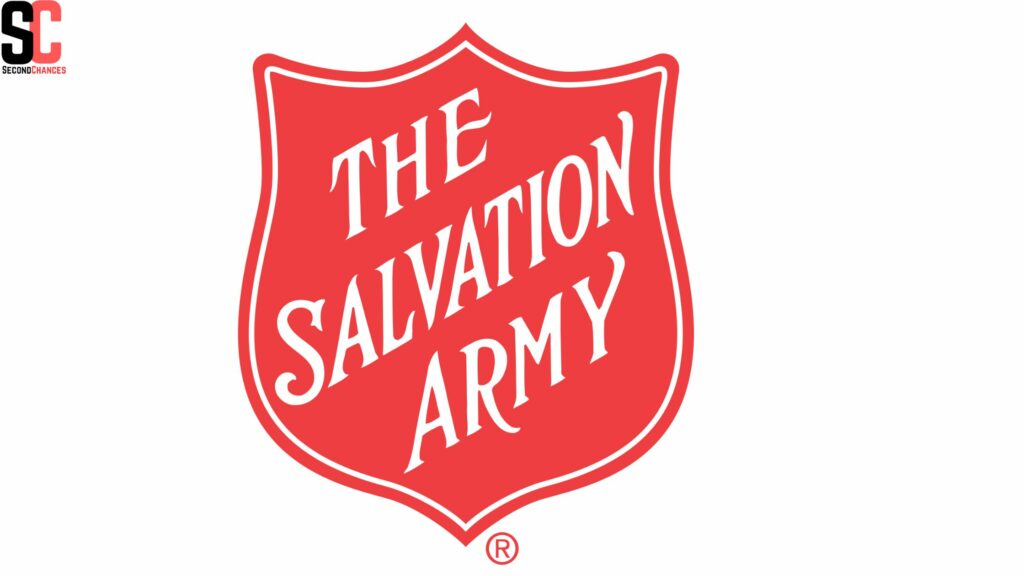
When we think of the Salvation Army, we usually picture people ringing bells outside of stores during the holiday season. However, this organization can assist single mothers with low incomes in finding housing.
Applicants who qualify for emergency rental assistance can receive assistance from the Salvation Army. You may qualify for rent assistance for up to 24 months if you qualify. In the event your financial situation improves over time, the Salvation Army may also be able to provide assistance to buy your own home. Also, the Salvation Army has special programs to help you maintain your current rental if you are at risk of losing it and becoming homeless. Besides helping you find a better-paying job, they provide lessons in budgeting and financial management.
Using CoAbode
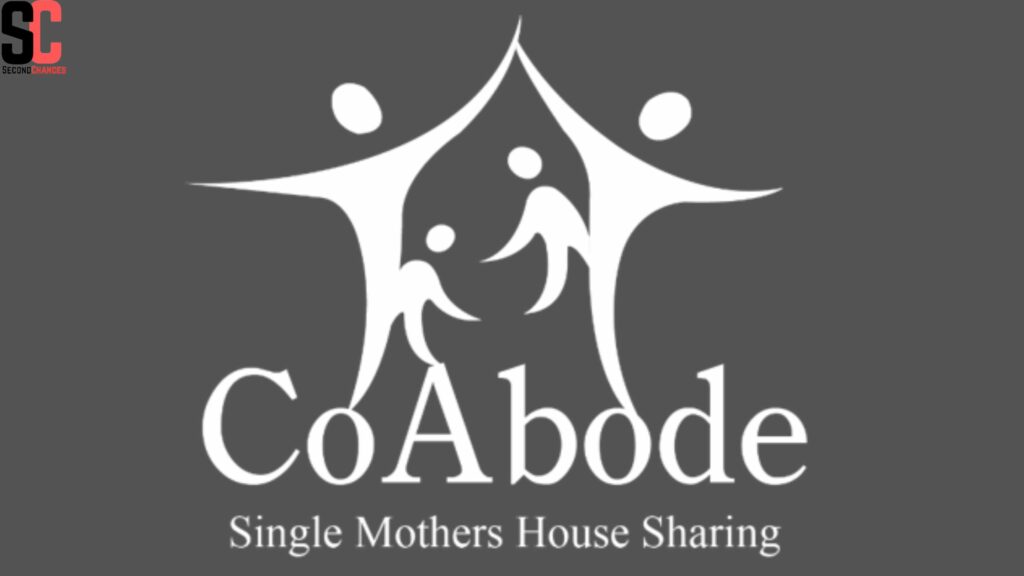
Finding safe and reliable roommates to split the bills becomes increasingly difficult as life changes. It’s even more challenging if you’re a single mother because you must worry about whether your child’s roommate will be a positive or negative influence.
This is where CoAbode comes in. CoAbode is a nonprofit organization that brings single mothers together to support each other. The program is free, and the screening process matches you with another single parent you are likely to get along with. You and your child might have to adjust if you have been living alone for a long time.
CoAbode allows you to cut your rent and other bills in half by living with someone, and you’ll notice a dramatic increase in your monthly savings. Single mothers are encouraged to work together as a support system in this program. It is possible that you have more in common with someone who is raising a child by themselves and get along better with them.
Religious Assistance

When you do not belong to a particular church or are not religious, you may feel odd asking for help from religious organizations. Yet the simple truth is that in many communities, religious assistance programs are the best option for struggling single mothers. Many Catholic churches have special charities to assist needy people, for example.
The programs can provide emergency housing, long-term housing assistance, and other services to single mothers. You may also find additional resources, such as budgeting and financial management training, in many of these programs designed to help you achieve financial independence.
Don’t Forget About Other Programs
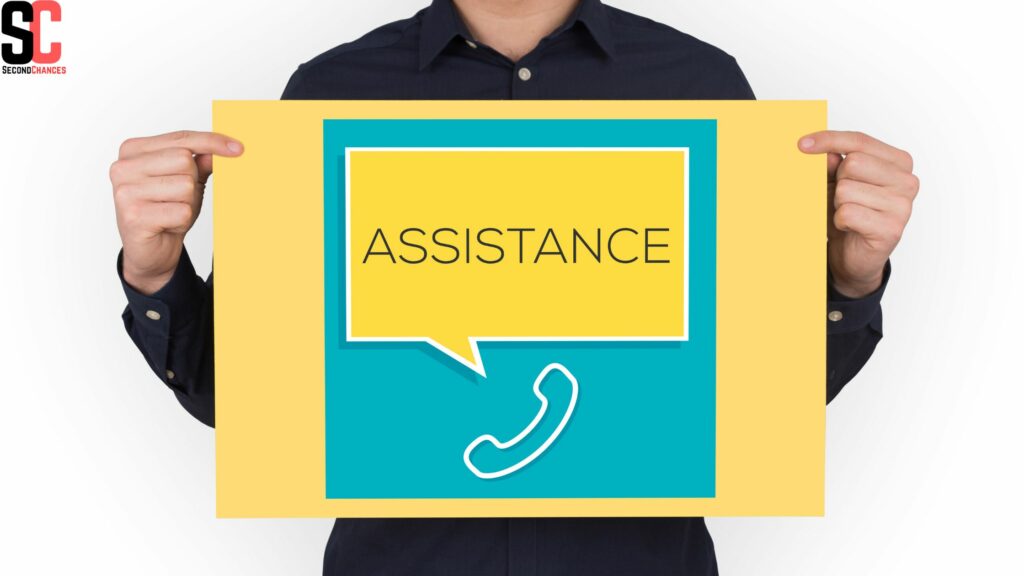
Many other assistance programs are available to single mothers, but these are just a few of them. It depends on where you live and whether your state or city has more programs. Check out what’s available in your state and locality by searching for “housing assistance near me” or similar. Housing Assistance For Single Fathers is available. Regardless of the route you choose, we hope you and your family can find support and assistance
Pros and Cons of Section 8 Housing For Single Mothers
Pros
- The landlords may view this as a hassle, but we see it as a way to get a free inspection every year. A few repair costs are always higher than expected in the short term, but keeping your property in good shape for the long term almost certainly saves you money. A property inspection can also help you get rid of a tenant abusing your property. You can point out to them that Section 8 requires the tenant to make the repairs because you get a copy of any required repairs from the tenant. Otherwise, they are forced to move and could lose their vouchers.
- Direct deposit will be used to collect whatever percentage of the rent is paid by the HUD every month. Money in the bank is the only excuse available to tenants. It is the tenant’s responsibility to pay for any portion of the rent that is not covered by Section 8.
- Although this isn’t true everywhere, in general – and certainly in Detroit – the rent you can charge a Section 8 tenant often exceeds what you can charge your average property in a less desirable neighborhood.
Cons
- The government will not compensate you for damage caused by a Section 8 tenant, but you can complain to Section 8 to have their voucher revoked. It will also be challenging to get money from the tenant, even if you get a judgment against them. Section 8 tenants are typically less concerned about maintenance because they are less financially invested in your property.
- The repairs that need to be made for a property/unit to be approved for Section 8 are pretty strict. Their guidelines can be found in the requirements. The requirements aren’t too bad unless your property has some unusual characteristics that would make correcting them prohibitively expensive. Don’t let a tenant move in until Section 8 has inspected your property – they won’t pay any rent until then. A month’s rent is lost if you don’t make repairs within 30 days of failing the inspection.
- Tenants in Section 8 are statistically more likely than other tenants to allow family members and friends to live with them after signing the lease. Section 8 prohibits extra people from renting your property because they cause extra wear and tear. The tenant can be warned if this situation continues or threatened with losing their voucher, but Section 8 may not have the time to investigate.
- There seems to be some commonality with Section 8 offices changing terms, almost always to the landlord’s disfavor, following a tenant’s move in. They may lower the rent by $50, or they may shift a few hundred dollars from themselves to the tenant (who is less likely to pay).
- It has been our experience that Section 8 tenants often contact us with problems they believe we can solve when they are actually responsible for them. One recent example is when a tenant’s ex-boyfriend broke her property’s windows, and she called us to fix them. In response to our informing her how much she had to pay for repairs, she argued that since she didn’t break them, she shouldn’t be responsible!
- Section 8 has an overworked staff and plenty of clerical errors—I once got checks for a tenant for six months after they moved out. You need to keep your paperwork up-to-date and submit any changes straight away. If you can get email addresses or extension numbers for a couple of staff members, treasure them—the phone system is a beast.
Tenant Responsibilities For Section 8 Housing
The PHA approves the family and the landlord, followed by the signing of a one-year lease. The PHA and the landlord also sign a housing assistance payment contract during this time. Housing Choice (Section 8) Voucher Program responsibilities fall on all parties, including tenants, landlords, PHAs, and HUD. Participation in the program and applying for assistance require an understanding of these roles.
Tenant’s Obligations
Once a family has selected an approved housing unit, they sign a lease with the landlord for one year. The landlord may require a security deposit of one month’s rent. An initial year-long lease may be initiated by the landlord, or a month-to-month lease may be offered.
Families are expected to follow their lease agreement and program requirements, pay rent on time, maintain their homes in good condition, and notify PHA of any changes in income and family composition once they move in.
Family members who receive voucher assistance cannot commit fraud, bribery, or any other corrupt or criminal act while receiving voucher assistance.
Landlord’s Obligations
An affordable rent is provided by the landlord to a family so that it can live in clean, safe, and decent housing. It is the landlord’s responsibility to ensure the housing unit meets housing quality standards (HQS) while they are receiving voucher payments. The PHA expects them to follow both their lease and housing assistance payments contract.
Housing Authority’s Obligations
A housing voucher is administered by the PHA to the family. PHAs also enter into housing assistance contracts with landlords, which entail them paying the landlord’s vouchers. If the landlord doesn’t comply with the lease or housing assistance payments contract, the PHA can terminate assistance payments. Furthermore, the PHA conducts an annual review of a family’s income and composition, as well as an annual inspection of each home, to ensure compliance.
HUD’s Role
The PHAs make a housing assistance payment on behalf of HUD and pay a fee to cover the costs of administering the program. When funds become available, HUD invites PHAs to apply for additional housing voucher funds. HUD reviews applications, and funds are awarded based on a competitive process. HUD also oversees PHAs to ensure program rules are followed.
FAQs
What is The Most Section 8 Will Pay?
A person’s income determines how much rent they must pay. A voucher will cover the difference between your adjusted monthly income and 30%, up to a predetermined maximum.
How Does Section 8 Housing For Single Mothers Work?
Housing assistance is provided to low-income individuals and families under the Section 8 program. The voucher allows participants to find safe and decent housing in the private market once they have been approved.
How Can I Get Section 8 Housing Immediately?
You can get emergency housing assistance by contacting your local Public Housing Agency. A housing voucher for homeless families, families at risk of becoming homeless, or families fleeing a situation of domestic violence, dating violence, human trafficking, sexual assault, or stalking can be obtained through the Emergency Housing Voucher (EHV).
How Do I Learn What Number I Am On The Section 8 Waiting List?
The number listed by your Public Housing Agency can tell you where you are on the Section 8 waiting list. You may also be able to update your application information or check your waiting list position online.
What Happens To My Section 8 Housing For Single Mothers When My Child Turns 18?
Your Section 8 Housing For Single Mothers benefits may be affected if your child turns 18 while you receive assistance. This depends on whether the child continues to live with you or starts contributing to the household income. Contact your Public Housing Agency if you have any questions regarding your Section 8 eligibility or the information you need to update.
Who Uses Section 8 Housing The MMost?
In the United States, 68% of all rental assistance goes to seniors, children, and people with disabilities.A Section 8 program is managed by the U.S. Department of Housing and Urban Development. Section 8 Assistance For Felons is available through this program, providing housing support for individuals with felony backgrounds
Conclusion
The Section 8 Housing For Single Mothers demonstrates society’s commitment to ensuring that all members, especially vulnerable demographics like single mothers, access basic necessities such as housing. Despite challenges, single moms can use this lifeline to secure a brighter future for their children and themselves.

